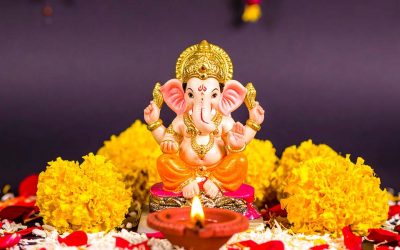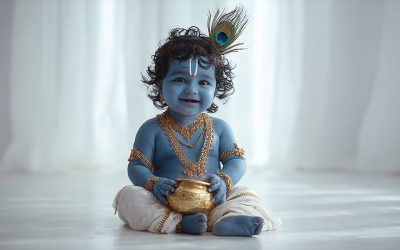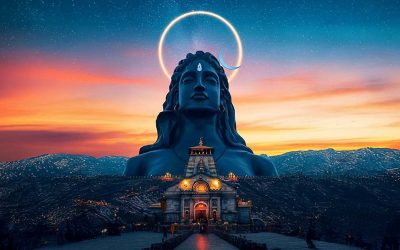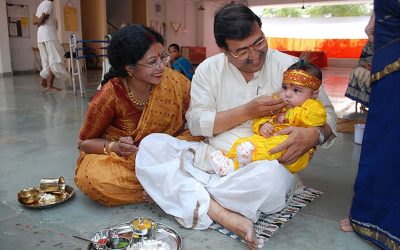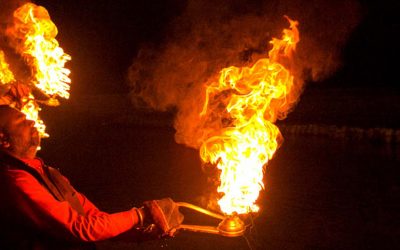Krishna Jayanthi Across India: Diverse Celebrations and Traditions
Krishna Jayanthi, also known as Janmashtami, marks the birth of Lord Krishna, one of the most revered deities in Hinduism. Celebrated with great enthusiasm and devotion, this auspicious occasion unites millions of devotees across India and beyond. The festival, steeped in rich mythology and cultural traditions, showcases the diverse ways different regions celebrate the divine birth. In this blog, we’ll journey across India to explore the unique customs, rituals, and festivities associated with Krishna Jayanthi, highlighting the rich tapestry of traditions that make this celebration special.
The Significance of Krishna Jayanthi
Krishna Jayanthi celebrates the birth of Lord Krishna, the eighth avatar of Lord Vishnu, who descended on Earth to restore dharma and conquer evil. Born in the Dwapara Yuga, Krishna’s life is depicted in the epic Mahabharata and various Puranas, with the Bhagavad Gita being a significant scripture where Krishna imparts spiritual wisdom to Arjuna. The festival falls on the Ashtami (eighth day) of the Krishna Paksha (dark fortnight) in Bhadrapada, corresponding to August-September in the Gregorian calendar.
Krishna’s life and teachings encompass various aspects, including divine love, wisdom, and the triumph of good over evil. As a playful child, a charming lover, a wise statesman, and a fearless warrior, Krishna’s multifaceted personality appeals to people of all ages and walks of life. This is reflected in the diverse ways Krishna Jayanthi is celebrated across India.
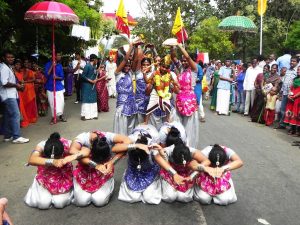
North India: Festivities in the Land of Krishna
In North India, particularly in Uttar Pradesh, Krishna’s birthplace, the celebrations are grand and vibrant. Mathura and Vrindavan, the sacred towns associated with Krishna’s early life, become the epicenters of Janmashtami festivities.
- Mathura and Vrindavan: The twin towns of Mathura and Vrindavan are deeply rooted in Krishna’s lore. In Mathura, the festival is marked by a grand procession known as the “Jhulan Yatra,” where beautifully decorated idols of Krishna and Radha are swung on ornate swings. Devotees gather in large numbers at the Krishna Janmabhoomi temple to witness the ceremonial abhishekam (bathing of the deity) with milk, honey, and ghee, followed by the midnight aarti. The temple reverberates with the chanting of “Hare Krishna” and melodious bhajans (devotional songs).
- Dahi Handi: In Maharashtra and other parts of North India, the tradition of Dahi Handi is a major highlight. Inspired by Krishna’s love for butter, young men form human pyramids to break a pot filled with curd, butter, and other dairy products, hung at a considerable height. This event symbolizes Krishna’s playful nature and is a thrilling spectacle. Cities like Mumbai witness competitive Dahi Handi events with teams vying for prizes.
- Fasting and Night Vigil: Many devotees observe a day-long fast, breaking it only at midnight, the supposed time of Krishna’s birth. Temples and homes are adorned with flowers and lights, and devotees sing bhajans and chant scriptures, staying awake to welcome the divine birth.
South India: A Blend of Devotion and Culinary Delights
In South India, Krishna Jayanthi, known as Gokulashtami, is celebrated with a unique blend of devotion and culinary traditions. The emphasis is on special offerings to the deity, including various sweets and savouries.
- Tamil Nadu: In Tamil Nadu, Gokulashtami is marked by intricate kolams (rangoli) drawn at the entrance of homes. Small footprints, symbolizing Krishna’s entry into the house, are drawn from the entrance to the pooja (prayer) room, signifying his presence. The day is dedicated to preparing a variety of delicacies, including seedai (crispy rice balls), murukku (savoury twists), and aval (flattened rice). Devotees gather in temples to participate in special poojas and listen to discourses on Krishna’s life and teachings.
- Andhra Pradesh and Telangana: In Andhra Pradesh and Telangana, the festival is celebrated with elaborate poojas and the recitation of Krishna’s childhood stories. The popular dishes for the occasion are “Chakralu” (sweet rings) and “Atukula Dosa” (a type of dosa made with flattened rice). Temples are beautifully decorated, and cultural programs, including dance and drama performances depicting Krishna’s life, are organized.
- Karnataka: In Karnataka, Krishna Jayanthi is known as “Krishna Janmashtami.” The day is marked by the preparation of a variety of sweets like “Chakkuli” (murukku), “Besan Laddu,” and “Mosaru Kudike” (curd pot breaking). The Udupi Krishna Temple, a prominent pilgrimage site, holds special significance during this time. Devotees throng the temple to participate in the grand celebrations, which include chanting, singing, and a ceremonial procession.
East India: A Melange of Devotion and Cultural Expressions
In East India, particularly in West Bengal, Odisha, and Assam, Krishna Jayanthi is celebrated with spiritual devotion and cultural festivities. The celebrations often overlap with the worship of Lord Jagannath, an incarnation of Krishna.

- West Bengal: In West Bengal, Janmashtami is celebrated with great enthusiasm. Devotees observe fasting and engage in prayer and chanting. The day is marked by reciting the “Bhagavad Gita” and “Bhagavata Purana” and singing bhajans. In many households, devotees create small dioramas depicting scenes from Krishna’s life, especially his childhood in Vrindavan. These displays, known as “Jhulan,” are a significant part of the celebration. Temples dedicated to Krishna, such as the ISKCON temple in Kolkata, host special events, including midnight aarti and kirtans.
- Odisha: The celebrations are closely tied to the Jagannath cult in Odisha. Puri, the abode of Lord Jagannath, witnesses grand festivities, with devotees flocking to the Jagannath Temple to offer prayers. The rituals include “Mangal Aarti” (early morning prayer) and “Abhishek” (ritual bathing). Special offerings, known as “bhog,” including “Chhena Poda” (a sweet dish made of cheese) and “Kheera” (sweet rice pudding), are prepared and distributed among devotees.
- Assam: In Assam, the celebration of Krishna Jayanthi is deeply influenced by the teachings of Srimanta Sankardev, a revered saint and scholar. The Namghars (prayer houses) are decorated, and devotees gather to sing “Borgeet” (devotional songs) and recite “Bhagavata Purana.” The day also sees enactments of “Ras Leela,” a dance-drama depicting the divine love of Krishna and Radha.
West India: A Cultural and Spiritual Extravaganza
In West India, especially in Gujarat and Rajasthan, Krishna Jayanthi is celebrated with a unique blend of cultural festivities and deep-rooted spiritual traditions.
- Gujarat: Gujarat, the land of Krishna’s kingdom, Dwarka, celebrates Janmashtami with immense devotion. The temples, particularly the Dwarkadhish Temple, are beautifully adorned with flowers and lights. The day is marked by “Abhishek” ceremonies, bhajans, and devotional dances. Devotees observe fasts, breaking them only after the midnight birth ceremony. Special dishes like “Panchamrit” (a mixture of five sacred ingredients) and “Makhan Misri” (butter with sugar) are prepared as offerings.
- Rajasthan: In Rajasthan, Janmashtami is celebrated with folk music and dance. The temples are decorated with colourful rangolis, and the idols of Krishna are adorned with new clothes and jewellery. Devotees gather to sing “Bhajans” and “Kirtans,” and traditional performances such as “Raas Leela” are staged. The “Matki Phod” tradition, similar to Dahi Handi, is also observed in some regions.
Conclusion
Krishna Jayanthi, with its vibrant celebrations and diverse traditions, reflects India’s rich cultural heritage. From the bustling streets of Mathura to the serene temples of South India, the festival is a time of joy, devotion, and spiritual reflection. Each region’s unique customs and rituals highlight Krishna’s multifaceted nature, making the celebration a unifying force in the diverse tapestry of Indian culture.
As we celebrate Krishna Jayanthi, we are reminded of Krishna’s teachings of love, compassion, and dharma. The festival serves as an opportunity to reflect on these values and seek inspiration from Krishna’s divine life. Whether through fasting, chanting, dancing, or simply sharing a meal with loved ones, Krishna Jayanthi invites us to connect with the divine and celebrate the eternal joy of Krishna’s presence in our lives.
